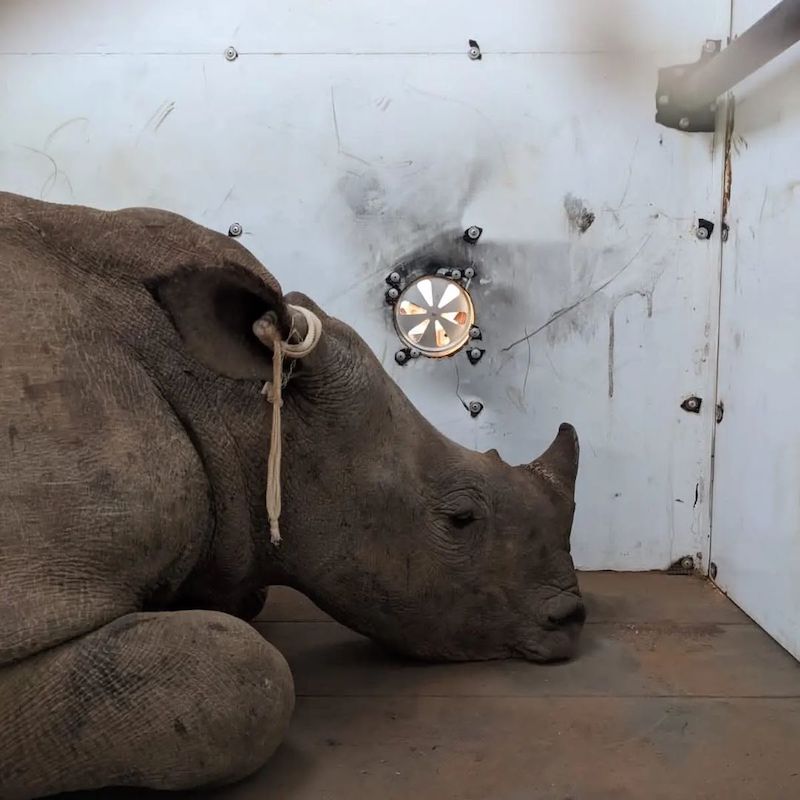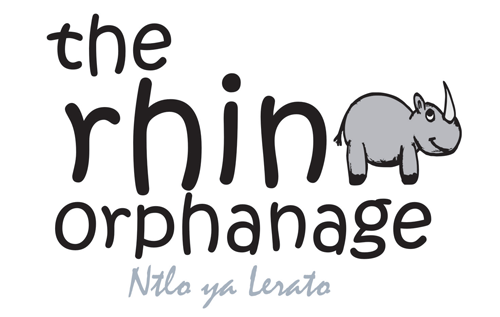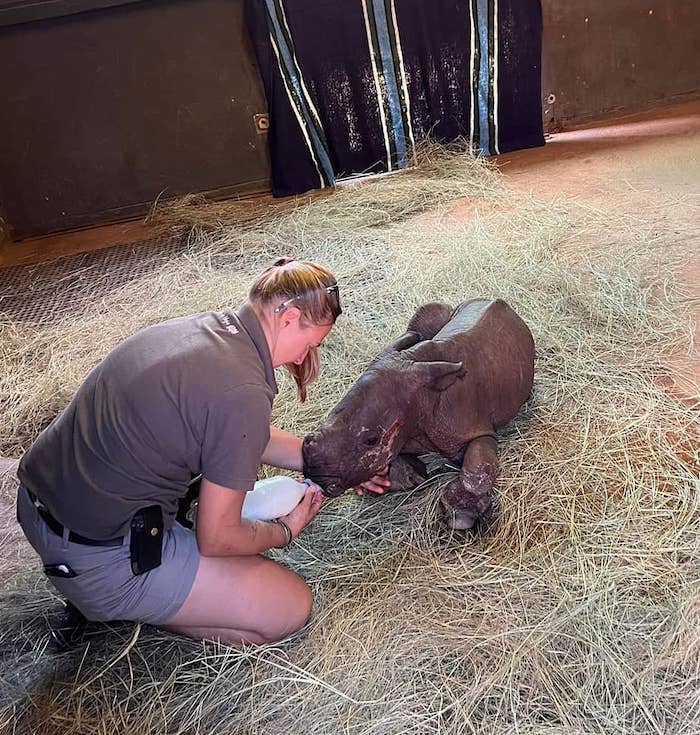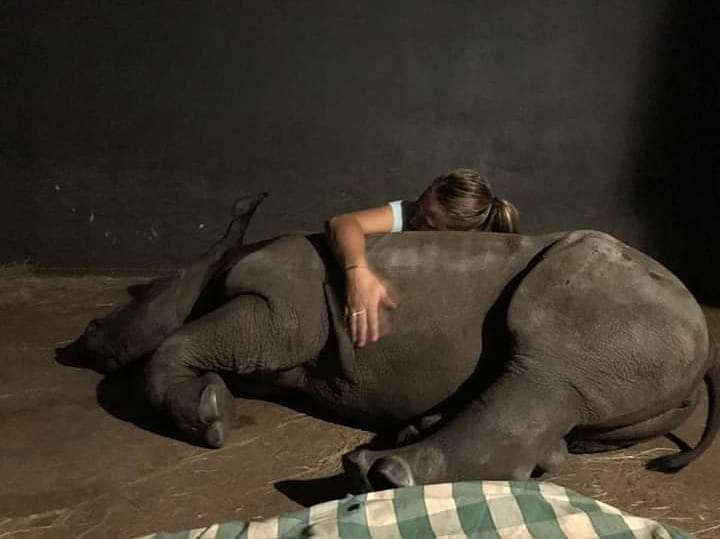giving rhino orphans a future.
Desperately driven to find a solution for a baby rhino that was left orphaned as a result of poaching, Arrie van Deventer founded world’s first rhino orphanage, a registered NPO, in 2012. The Rhino Orphanage was the first-ever specialised, non-commercial centre dedicated to the rescue, rehabilitation, raising and release of orphaned rhinos back into the wild.
Although new-born rhinos can weigh up to 50kgs, they are essentially “helpless” and require protection in order that they may survive and ultimately thrive.
Rhino calves and rhino mothers are closely bonded. Rhino babies are fiercely protected by their mothers in the wild, so when a rhino mother is killed, the rhino orphan becomes particularly vulnerable and their longevity is endangered. Under normal circumstances, rhino calves will stay with their mothers for around 3 years. For this reason, the rhino orphans in our care typically require the same intensity and timeframe of nurturing from our carers.
rhino are hand-reared
Baby rhinos are hand-reared by qualified rehabilitation staff, with multiple daily feedings of a milk substitute as well as supplementary food until ready to be weaned. The rhinos are split into groups according to age and how dependent they are on their human moms.
natural behaviour encouraged

monitored by veterinarians
Health checks, diets and all medical issues are treated by specialized veterinary staff. Human contact is restricted to prevent the imprinting of rhinos to humans, so that problem animals aren’t created when released and rewilded in adulthood.
Rescuing baby rhinos in need and preparing them for release back into the wild, where they belong.
baby rhinos that need your support
For as little as $10 a month.






our rhino sanctuary
Located in the bushveld of the Limpopo Province in South Africa, the sole purpose of our rhino sanctuary is to provide a safe place where injured and orphaned baby rhinos can be healed, hand-reared, rehabilitated and released back into their natural habitat.
As the world’s first dedicated rhino orphanage and the first rhino orphan sanctuary of its kind, we are considered to be one of the pioneers in this vital area of rhino conservation.
Conservation means many things, but for The Rhino Orphanage, it entails physically building and maintaining facilities that can safely shelter orphaned rhinos and other wildlife. It means employing and training the right people to care for the rhinos and administrate the project. It means being 110% dedicated to protecting rhinos, 24/7, 365days of the year.
learn more about our rhino rescue centre
How can you help the rhino orphans?
give a one-time donation
adopt with a monthly subscription
For less than the cost of two cups of takeaway coffee per month, you can sponsor a baby rhino.
wishlist purchase
Want to help with a specific need? Check out our wishlist and donate the items we need.
volunteer with us
Experience the African bush and make a difference through your paid volunteer placement.
become a sponsor
Increase your company’s CRO through a mutually beneficial partnership with the sanctuary.
special programs
Invest in our special projects like anti-poaching patrols, mounted rangers and sniffer dogs.
rhino rescue stories
The latest from our blog.

rhino conservation faqs
Let’s explore the plight of rhino and our mission through the below frequently asked questions.
Are rhinos endangered?
Yes! Rhinos are critically endangered which means that they could become extinct within our lifetime. There are less than 30 000 rhino living in the wild around the world, compared with roughly 400 000 that were still alive at the beginning of the 20th Century.
Why are rhinos endangered?
In previous eras, rhinos were killed by trophy hunters.
The hunters of the Colonial era were responsible for killing thousands of animal species around the globe. Mega-herbivores such as elephants and rhinos were killed for sport, as well as for their horns and tusks – which were considered a symbol of wealth and status.
Nowadays, rhinos face extinction due to poaching, habitat loss, inbreeding, and fragmentation. Rhinos are brutally poached (illegally killed) for their horns. Poaching is extremely cruel, causes immense suffering, and is primarily done to obtain rhino horn. Rhino horn is not only illegal, it also has absolutely no benefits for humans whatsoever.
As human populations increase, there’s a greater need for farmlands which means loss of habitat for the rhinos. When land is cleared for agriculture, the rhino are forced to find grasslands elsewhere. Farmland- and human development tend to fragment rhino populations, which makes it difficult for them to breed.
Why are Rhino in Africa at risk?
Greed, ego, ignorance and status are the biggest drivers for rhino horn poaching. One rhino horn is worth around GBP200 000 (USD 254 826). Although organised crime typically spearheads the trade, the poachers themselves are often economically disadvantaged.
How do we protect the rhinos?
Education, awareness and conservation are the primary ways we protect rhinos.
Awareness campaigns are aimed at reducing the demand for rhino horn, as well as highlighting the impact of poaching on rhino populations. Educating the public and policy makers about the brutality, cruelty and senselessness of the rhino horn trade is also part of the ongoing awareness drive.
Education regarding the natural environment, as well as exploring alternative and sustainable forms of income (safari lodges, tourism, traditional craft etc.) for local communities are key drivers for reducing death of rhinos due to poaching.
Poaching prevention is integral to rhino conservation and happens by way of training and funding anti-poaching teams.
learn more about the plight of the rhino
the dwindling rhino population numbers through the years...
19th Century
1,000,000
1970
70,000
2020
27,000










